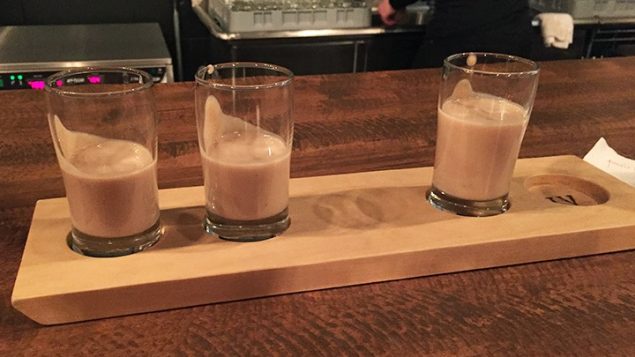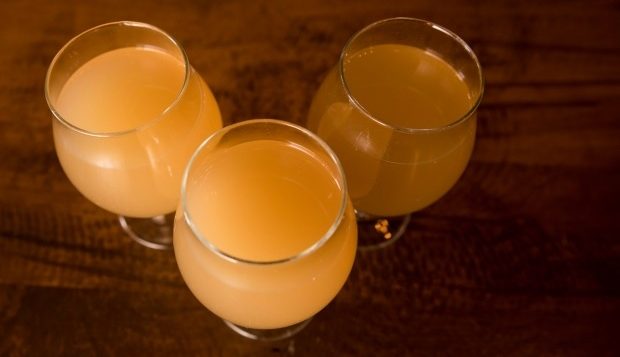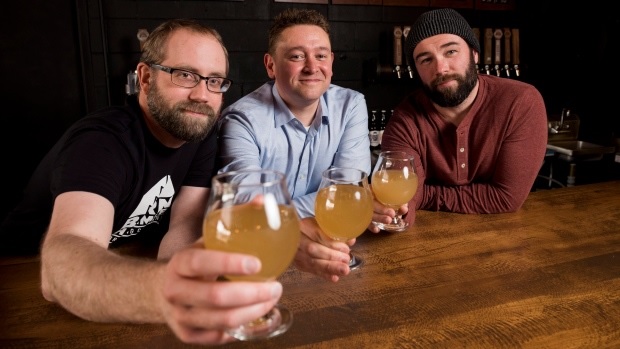Besides being Canadian, what does a university expert in Hellenistic and Roman history who can translate ancient Greek, and a craft brewery have in common?
The answer is approximately 1,700-year-old Egyptian beer.
Professor Matt Gibbs is Chair of the University or Winnipeg’s Department of Classics, and he likes beer.
Last November he got into a casual discussion with Tyler Birch and Brian Westcott, co-owners of Barn Hammer Brewing a local Winnipeg craft brewer. They began chatting about beer in ancient societies, and how it was made.
That led to another Canadian connection, a book by Dr. Max Nelson from the University of Windsor, in Ontario called “The Barbarian’s Beverage: A History of Beer in Ancient Europe”.
It contained a 4th century beer recipe from Egypt, when that region would have been under Roman control.
The recipe however was written in Greek. Gibbs translated it, and he and the team began working towards recreating the beer. Part of the effort was to avoid modernizing the recipe, ingredients, and procedures.
After milling barley flour by hand, water was added to make sourdough bread. This was later “baked” in a time-consuming process requiring just enough heat to cook the bread but without damaging the enzymes needed to make beers could survive. This was a rough equivalent to “malting”. The process took 18 hours in which the stove was turned on and off as even on “low” setting modern stoves are still too hot.
Then the bread was submerged in the brewer’s fermenter (ancient clay urns not being readily available) and over the next two weeks it slowly transformed from something looking like a chocolate milkshake to something a lot more clear, albeit still a bit cloudy.

The first samples early in the process looking more like chocolate milk shakes. Over the next 3 weeks the beer would become clearer. PHOTO: Dr Matt Gibbs- U Wpg News
So, taste?
Surprisingly drinkable according to the trio,although the trio says it doesn’t taste like what people today would call beer.
Quoted in the University of Winnipeg News, Gibbs said, “Personally, it’s too sour for me. But that’s part of the experiment: how much have our palates changed over time? Because, for example, now there’s sugar in almost everything now”.

All the rage almost 2,000 years ago, the ancient Egyptian beer, is not quite what modern drinkers would know. Rather sour, and with no carbonation, it’s still surprisingly drinkable, even to modern palates according to the brewers.
PHOTO: David Lipnowski/Canadian Press
The alcohol content is about three percent and it’s flat, not bubbly like modern beers as there was no carbonation those many centuries ago.
The beer won’t be marketed, but the group found the whole process an intriguing lesson in how brewing and the technology have changed over tiem.
Also quoted was Brian Wescott who said, “(It’s) very interesting to try and replicate some ancient recipes and see what comes out. We’re going to do more batches varying some parameters and see what happens.”
Additional information-sources







For reasons beyond our control, and for an undetermined period of time, our comment section is now closed. However, our social networks remain open to your contributions.